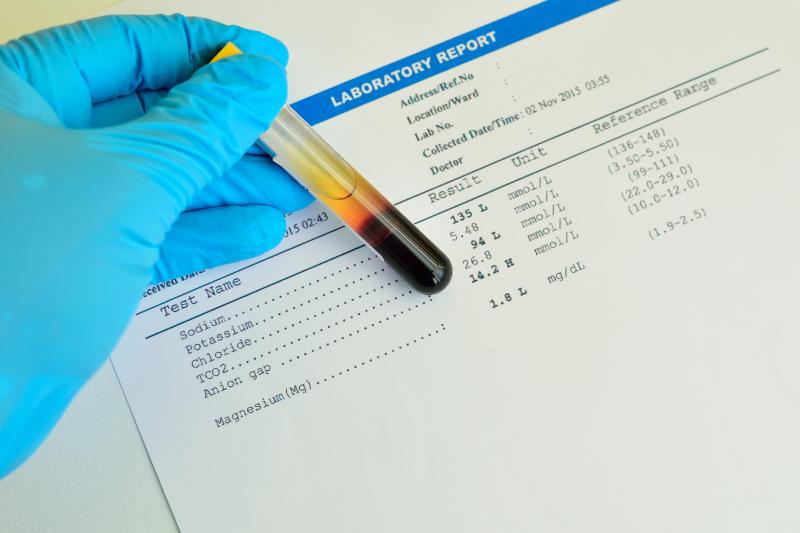
Use of furosemide plus salt supplement in addition to fluid restriction does not prove to be more effective than fluid restriction alone in correcting hyponatremia in patients with syndrome of inappropriate antidiuresis (SIAD), according to data from the EFFUSE-FLUID* trial.
A total of 92 patients with serum sodium concentrations ≤130 mmol/L due to SIAD were randomly assigned to receive one of the following treatments for 28 days: fluid restriction alone (FR; n=31), fluid restriction and furosemide (FR+FM; n=30), or fluid restriction and furosemide plus NaCl (FR+FM+NaCl; n=31). Furosemide was given at 20–40 mg/day and NaCl supplements at 3 g/day. The urine to serum electrolyte ratio was used to guide strictness of fluid restriction (<1,000 or <500 mL/d).
Mean serum sodium concentration ([Na +]) at baseline was 125 mmol/L overall, with no significant differences between groups. At day 4, mean [Na +] significantly increased by 5 mmol/L (p<0.001), although the change did not differ across all treatment groups (p=0.7).
Furthermore, no difference was observed in the percentage of patients or the time to reach [Na +] ≥130 or ≥135 mmol/L across the three groups.
Acute kidney injury and hypokalaemia (potassium ≤3.0 mmol/L) occurred with greater frequency among patients receiving furosemide.
*Efficacy of Furosemide, Oral Sodium Chloride, and Fluid Restriction for Treatment of Syndrome of Inappropriate Antidiuresis